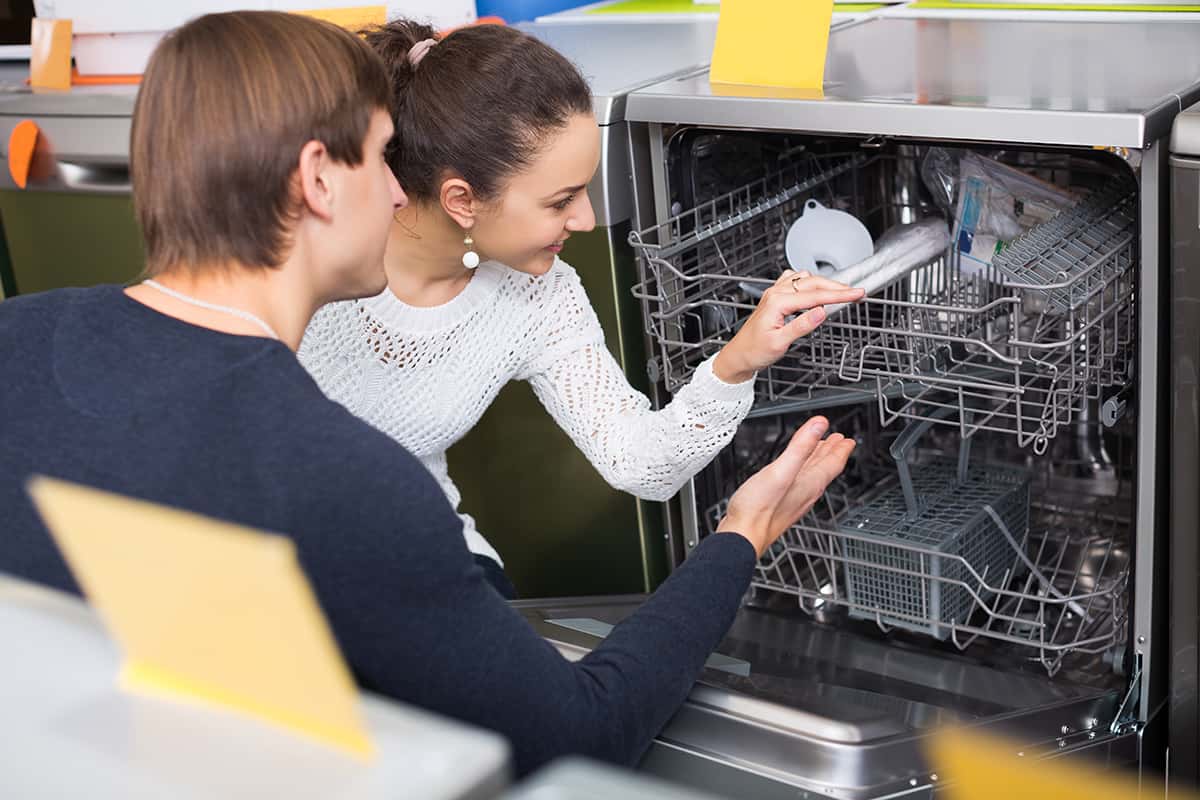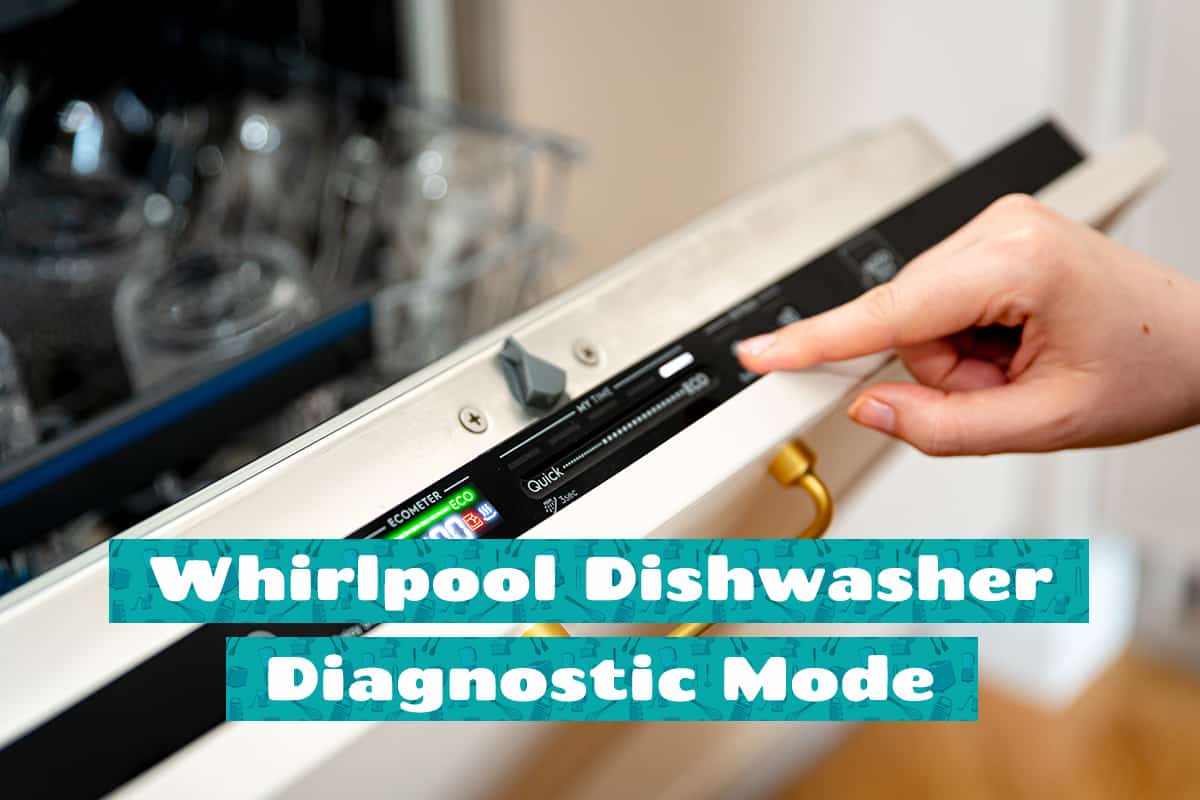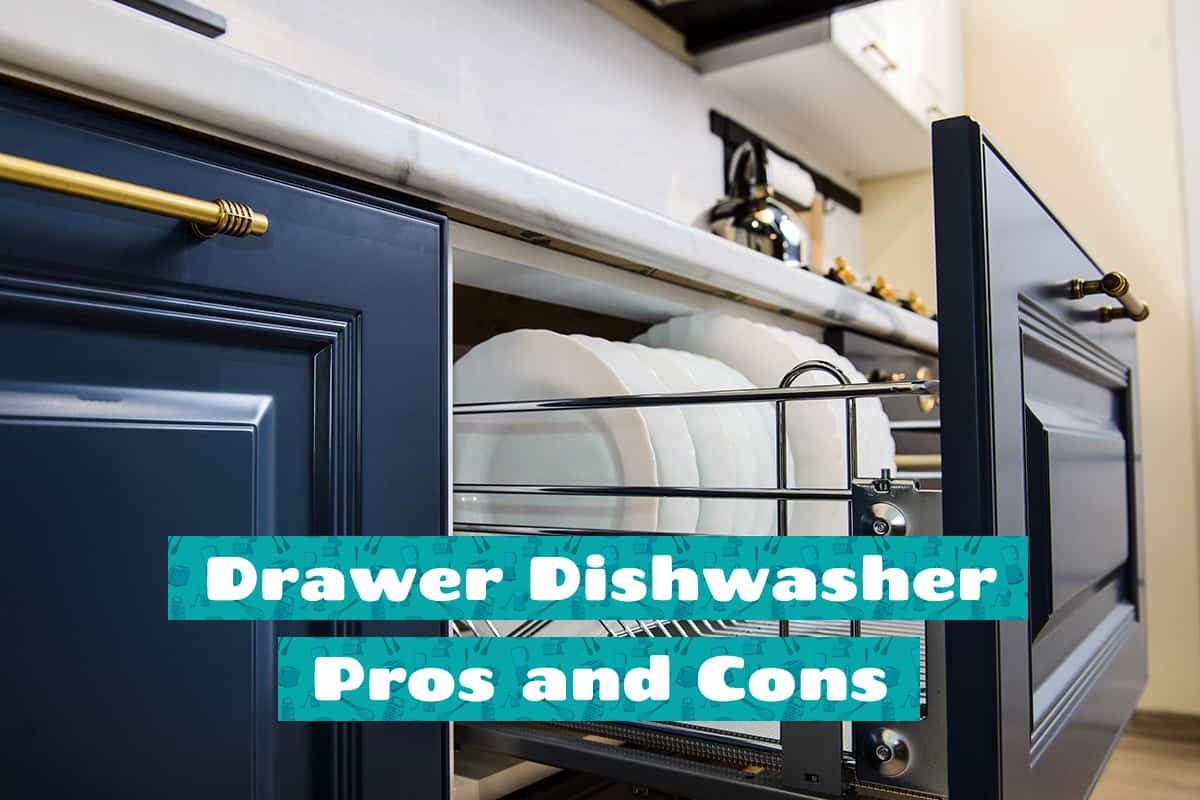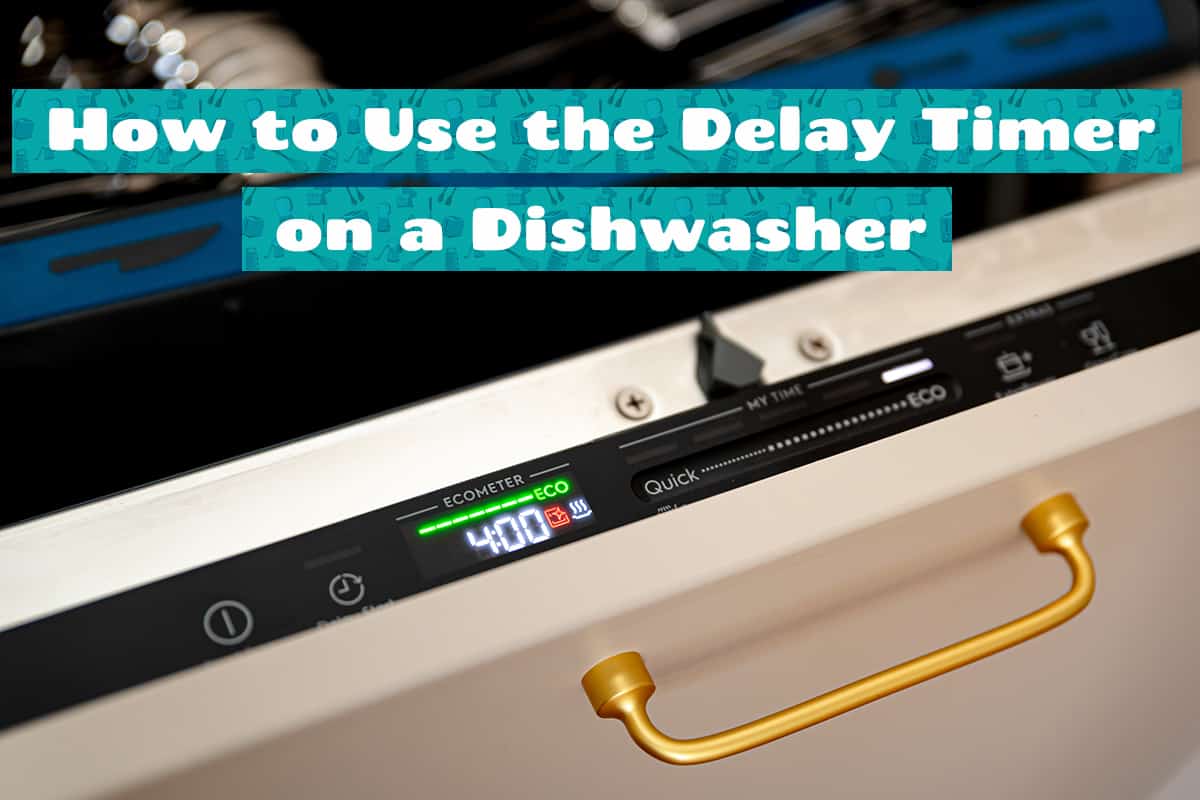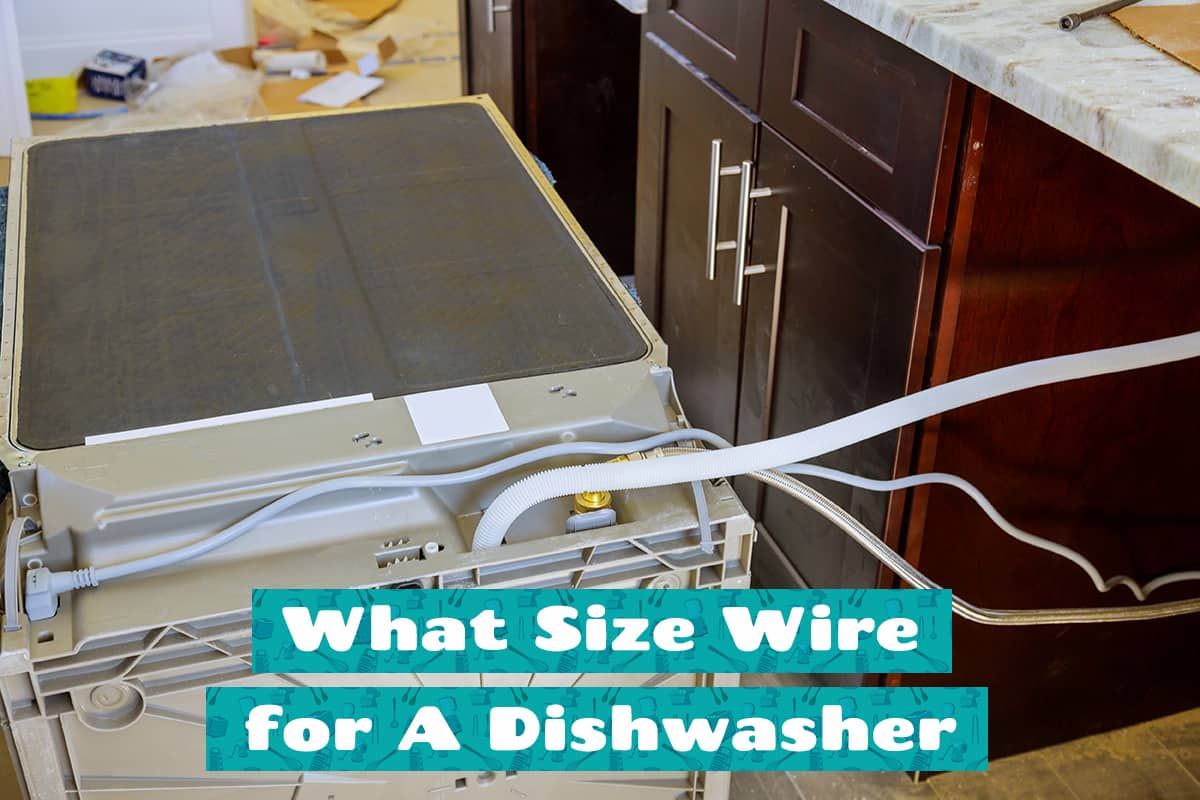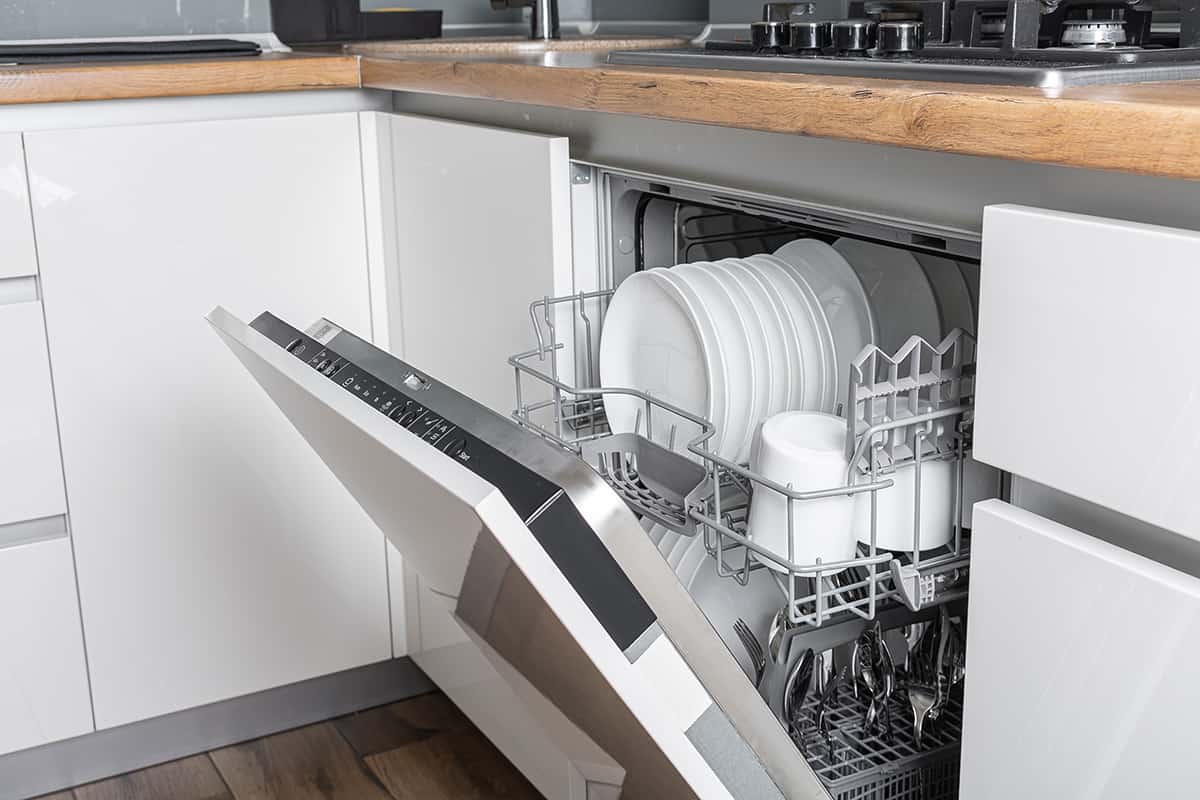A good dishwasher can clean dishes better than most of us can do by hand. But it’s not just about clean dishes. A good dishwasher can also save water and energy. However, not all dishwashers are created equal—some are quiet, some are powerful, some are energy-efficient, and some are all of the above. So, how do you choose the right one?
Choosing a dishwasher can be made simple by considering these main points:
- Type—Built-in vs. freestanding vs. portable countertop
- Size—Make sure it fits in your kitchen.
- Capacity—It should be able to handle your dishes.
- Efficiency—It should use water and energy wisely.
- Noise Level—It should not be too loud.
- Cleaning Performance—It should do what you want it to do.
- Durability—It should withstand years of punishment and dirty dishes.
- Additional features—It should come with the right bells and whistles to make your life easier.
This guide is your one-stop shop for everything you need to know about buying a dishwasher. We’ll delve into the types of dishwashers, key features to look out for, and how to get the best value for your money.
Why You Need a Dishwasher
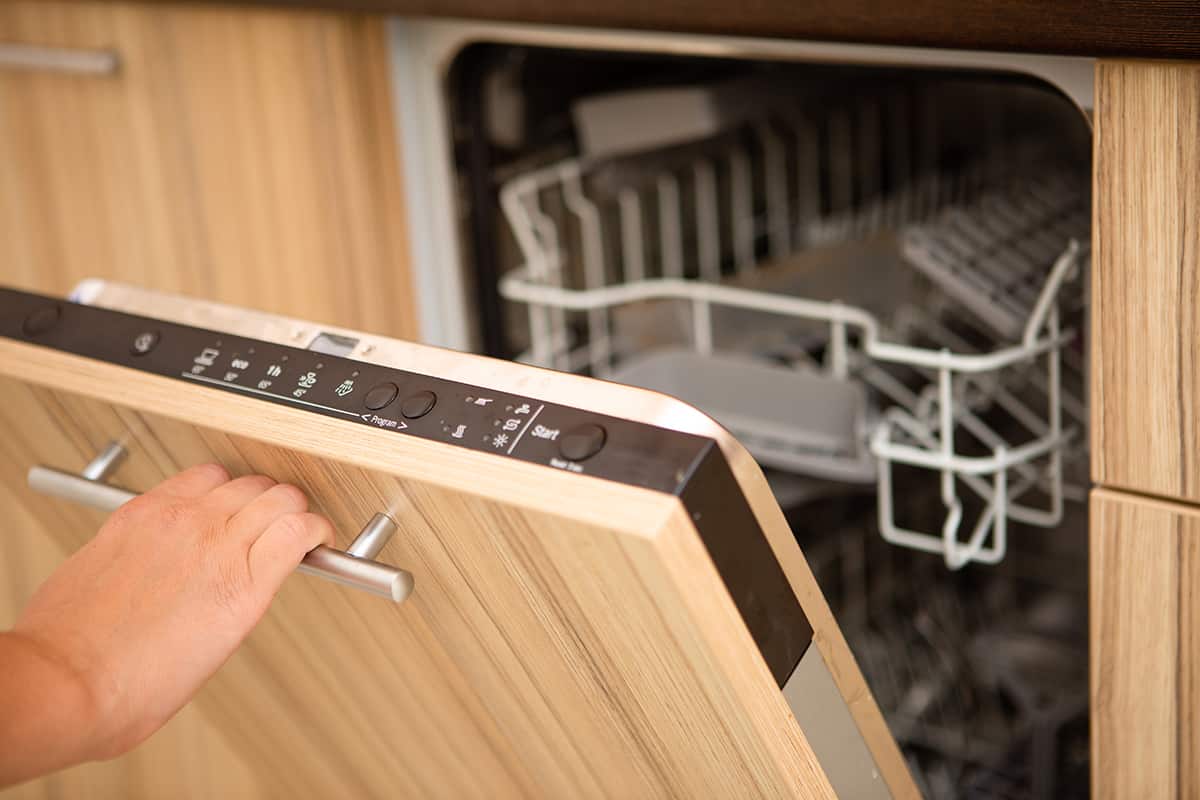
Before you begin shopping for a dishwasher, you need to ask yourself, “Do I need a dishwasher?” The answer to this question is almost always a resounding “Yes!”
Take a look at the following points and see how they make you feel about these household appliances:
Water and Energy Saver
Dishwashers use less water than washing dishes by hand. An average dishwasher uses about 4 gallons of water per cycle, while hand washing may use at least 20 gallons of water! That’s a lot of water saved.
Sanitation
Dishwashers clean dishes at high temperatures, much hotter than your hands could stand. This high heat can kill more bacteria, making your dishes not just clean but sanitary. This is especially important when someone in your house is sick.
Convenience
With a dishwasher, you can just load the dirty dishes, press a button, and walk away. It’s that simple. Plus, some dishwashers have delay start features. You can load it in the morning, set it to run when you’re at work or school, and come home to clean dishes.
Improves Home Value
If you’re thinking about selling your home someday, a dishwasher is an attractive feature for many buyers. A well-maintained kitchen with modern appliances, including a dishwasher, can increase your home’s value.
Key Factors to Consider When Buying a Dishwasher
Choosing a dishwasher isn’t as simple as picking the first one you see. There are several key factors you should consider.
1. Dishwasher type
There are mainly three types of dishwashers—built-in, portable, and countertop.
- Built-in dishwashers are the most common. They are installed under the kitchen counter and provide a seamless look. They’re typically 24 inches wide, but there are also compact ones that are 18 inches wide.
- Freestanding dishwashers are great for those who rent or move often. They’re on wheels, so you can move them around. They connect to the kitchen faucet when in use and can be stored away when not in use.
- Portable countertop dishwashers are the smallest. They sit on your kitchen counter and are perfect for small kitchens or for people who don’t use many dishes.
2. Size and capacity
The size of the dishwasher you choose should fit in your kitchen. Measure the space where you plan to put it to make sure it fits.
Capacity is about how many dishes it can hold. A standard dishwasher typically holds 12-16 place settings. A place setting includes a dinner plate, dessert plate, glass, teacup, and their respective utensils. If you have a big family or often host parties, consider a dishwasher with a larger capacity.
3. Energy efficiency
An energy-efficient dishwasher is good for the environment and your utility bills. Look for dishwashers with the Energy Star label. They use less water and electricity than non-Energy Star models.
4. Noise level
If your kitchen is close to your living area, you might want a dishwasher that runs quietly. The noise level of dishwashers is measured in decibels (dB). A quiet dishwasher usually has a noise level of 45 dB or less.
5. Cleaning performance
A dishwasher should clean dishes well. Look for models with features like multiple wash cycles and high-temperature wash options.
6. Durability
You want a dishwasher that will last. Dishwashers with stainless steel interiors are more durable than plastic. They resist staining and can withstand higher temperatures. Also, check the dishwasher’s warranty. It can give you an idea of how long the manufacturer expects the dishwasher to last.
7. Additional features
Many dishwashers come with extra features that make them more convenient to use. Here are a few you might consider:
- Delay start—This feature lets you load the dishwasher and set it to start later. It’s useful if you want the dishwasher to run when you’re out of the house or at night when electricity rates may be lower.
- Third rack—Some dishwashers have a third rack at the top for small items like utensils and small cups. It can free up space in the lower racks for larger dishes.
- Hard food disposer—This feature grinds up food particles, so you don’t have to rinse your dishes before loading them.
- Soil sensor—As mentioned earlier, a soil sensor adjusts the wash cycle based on how dirty the dishes are.
- Heated dry—This feature uses heat to dry the dishes at the end of the cycle. It can be a time-saver, but it uses more energy.
A Quick Look at Top Dishwasher Brands
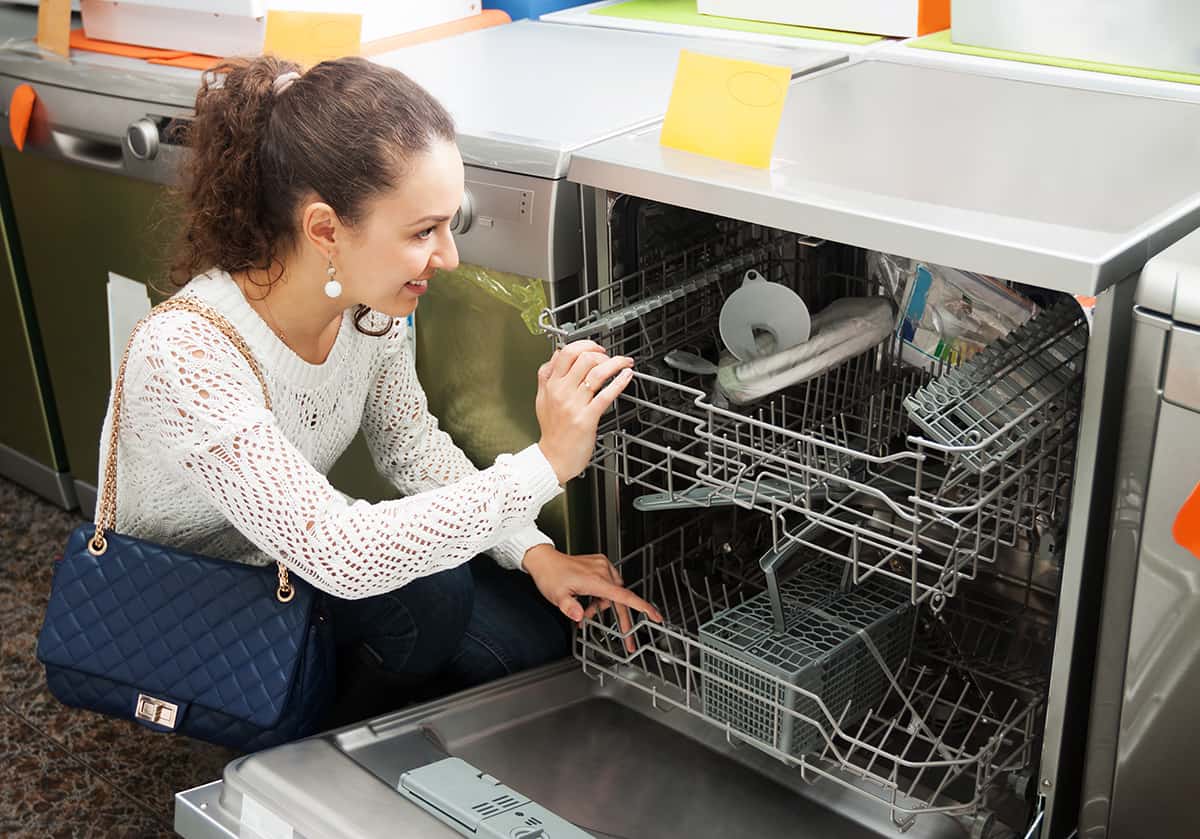
When shopping for a dishwasher, you’ll come across many brands. Here are some of the top dishwasher brands and what they’re known for.
1. Bosch
Bosch is a German brand famous for its high-quality appliances. They offer dishwashers that are quiet, energy-efficient, and have high cleaning performance. Bosch dishwashers also have features like a third rack for more loading capacity, soil sensors, and a sanitize option.
2. Whirlpool
Whirlpool is a well-known American brand. They offer a wide range of dishwashers from basic, affordable models to high-end ones with advanced features. Whirlpool dishwashers are known for their reliability and excellent customer service. Some popular features in Whirlpool dishwashers include soil sensors, heated dry, and a 1-hour wash cycle.
3. Maytag
Maytag is another reputable American brand. Their dishwashers are known for their durability and powerful cleaning. Most Maytag dishwashers come with a 10-year limited parts warranty, showing their confidence in their products’ longevity. Features you might find in a Maytag dishwasher include a hard food disposer, steam sanitizing, and a PowerBlast cycle for heavily soiled dishes.
4. GE Appliances
GE Appliances offer a range of dishwashers from budget-friendly to high-end. They are known for their advanced technology and smart features. Some GE dishwashers can be connected to Wi-Fi, allowing you to control them from your smartphone. Other features include a hard food disposer, bottle jets for cleaning tall items, and adjustable racks.
5. Miele
Miele is a high-end German brand. Their dishwashers are known for their excellent cleaning performance, quiet operation, and sleek design. Miele dishwashers come with unique features like the AutoOpen door that automatically opens at the end of a cycle to help drying, a 3D cutlery tray, and a QuickIntenseWash cycle.
6. KitchenAid
KitchenAid is a premium American brand. Their dishwashers offer high cleaning performance and have a distinct design with a bar handle. KitchenAid dishwashers also have useful features like a third rack, a ProWash cycle that adjusts based on how dirty the dishes are, and a ProDry option that uses heat and a fan to dry dishes.
7. Frigidaire
Frigidaire offers affordable dishwashers that provide good value for money. They may not have all the advanced features of higher-end brands, but they get the job done.
Budgeting for a Dishwasher
Buying a dishwasher is an investment. Just like any investment, you need to plan and budget for it. You can always do your shopping for a dishwasher at the right time, but if you need a dishwasher right now, here’s what you need to keep in mind.
1. Understand the price range
Dishwashers come in a wide range of prices. A basic, no-frills dishwasher can cost as little as $200-$300. Mid-range dishwashers, which offer better performance and more features, can cost between $400 and $700. High-end dishwashers, with advanced features and premium designs, can cost $800 and upwards, with some luxury models even crossing the $2,000 mark.
2. Determine your needs
To budget effectively, you need to know what you need in a dishwasher. Do you need a large capacity dishwasher for a big family, or will a compact model suffice? Do you want advanced features like soil sensors, third rack, and Wi-Fi connectivity, or are you happy with basic features?
3. Factor in energy efficiency
While an energy-efficient dishwasher may cost more upfront, it can save you money in the long run through lower utility bills. Look for dishwashers with the Energy Star label. They are at least 12% more energy-efficient and 30% more water-efficient than non-certified models.
4. Consider installation and operating costs
When budgeting for a dishwasher, don’t forget about installation costs. If you’re replacing an old dishwasher with a new one of the same type, the installation might be straightforward. But if you’re installing a dishwasher for the first time or switching types (from portable to built-in, for example), you might need professional installation, which will cost extra.
Operating costs are another consideration. This includes the cost of electricity, dishwasher detergent, rinse aid, and any special cleaning products the dishwasher requires.
